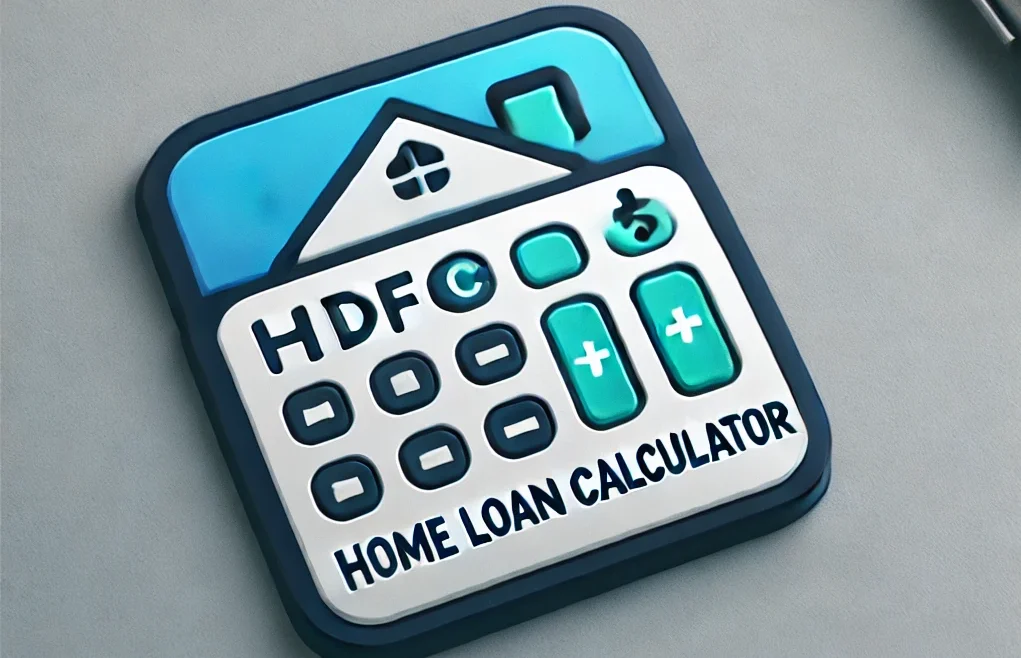How to Boost Your Credit Score for a Higher HDFC Home Loan Amount
A good credit score is crucial when applying for a home loan, especially if you want to maximize your loan amount. HDFC Bank, like most lenders, uses your credit score to evaluate your creditworthiness and determine the loan amount you are eligible for. If you’re planning to apply for an HDFC home loan, boosting your credit score can significantly improve your chances of approval and help you secure a larger loan. Here’s a comprehensive guide on how to improve your credit score to qualify for a higher home loan amount.
Table of Contents
- Why Your Credit Score Matters for an HDFC Home Loan
- 7 Tips to Boost Your Credit Score for a Higher Loan Amount
- Check Your Credit Report Regularly
- Pay Off Outstanding Debts
- Maintain a Low Credit Utilization Ratio
- Avoid Multiple Loan Applications
- Increase the Tenure of Your Existing Loans
- Keep Old Credit Accounts Active
- Set Up Automatic Payments for Timely Repayment
- Frequently Asked Questions (FAQs)
Why Your Credit Score Matters for an HDFC Home Loan
A credit score is a numerical representation of your credit history, and it plays a pivotal role in determining your loan eligibility and loan amount. HDFC usually requires a credit score of 750 or above for home loan approval. A higher credit score demonstrates that you are a responsible borrower, which can lead to better interest rates and a higher loan amount.
A poor or average credit score can limit your loan options, result in higher interest rates, or even lead to loan rejection. Therefore, improving your credit score is crucial if you want to maximize your borrowing capacity with HDFC.
7 Tips to Boost Your Credit Score for a Higher Loan Amount
Here are seven proven strategies to boost your credit score before applying for an HDFC home loan:
1. Check Your Credit Report Regularly
Start by obtaining your credit report from authorized credit bureaus like CIBIL, Equifax, or Experian. Go through the report carefully to identify any errors, such as incorrect personal information or inaccurate debt details. If you find discrepancies, report them immediately and have them rectified. Correcting errors can improve your credit score significantly.
Pro Tip: Checking your credit report every few months will help you stay updated on your credit health and catch any issues early.
2. Pay Off Outstanding Debts
Clearing outstanding debts is one of the quickest ways to improve your credit score. If you have multiple debts (such as credit card bills, personal loans, etc.), prioritize paying them off, especially if they have high interest rates. Reducing your overall debt burden not only boosts your credit score but also increases your chances of securing a higher loan amount from HDFC.
Pro Tip: Start by paying off high-interest debts first, as they contribute more to your overall financial stress.
3. Maintain a Low Credit Utilization Ratio
Your credit utilization ratio refers to the percentage of your available credit that you’re currently using. Ideally, you should aim to keep your credit utilization below 30% of your total credit limit. Using too much of your available credit can signal to lenders that you may be over-leveraged, which can negatively impact your credit score.
Pro Tip: If your credit utilization is high, try paying off a portion of your outstanding balance or request a credit limit increase to reduce your utilization ratio.
4. Avoid Multiple Loan Applications
Applying for multiple loans or credit cards within a short period can hurt your credit score. Each time you apply for credit, a hard inquiry is made on your credit report, and too many hard inquiries can lower your score. Before applying for an HDFC home loan, avoid making any other significant credit applications.
Pro Tip: Plan your loan applications carefully. Space them out over time to avoid negative impacts on your credit score.
5. Increase the Tenure of Your Existing Loans
If you have existing loans, consider extending the loan tenure. Increasing the repayment period reduces your monthly EMI burden, making it easier for you to manage payments. Lenders prefer borrowers with a low debt-to-income ratio, and this step can positively impact your credit score.
Pro Tip: While increasing your loan tenure reduces EMI, keep in mind that it may increase your overall interest outflow over the long term.
6. Keep Old Credit Accounts Active
Your credit history length also plays a role in determining your credit score. If you have old credit accounts with a positive payment history, don’t close them. Keeping these accounts open shows lenders that you have a long and reliable credit history, which improves your score.
Pro Tip: Even if you no longer use an old credit card regularly, make small purchases and repay them on time to keep the account active.
7. Set Up Automatic Payments for Timely Repayment
One of the most critical factors in your credit score is your repayment history. Late payments can drastically lower your score. To ensure you never miss a payment, set up automatic payments for your loans, credit cards, and other debts. This will help you maintain a consistent and positive repayment record, which is essential for boosting your credit score.
Pro Tip: If possible, pay more than the minimum due on your credit cards to reduce debt faster and improve your credit score.
Frequently Asked Questions (FAQs)
1. How long does it take to improve a credit score?
On average, it can take anywhere from 3 to 6 months to see noticeable improvements in your credit score. However, it may take longer depending on the severity of your credit issues.
2. What is the ideal credit score for an HDFC home loan?
A credit score of 750 or above is considered ideal for an HDFC home loan. The higher your score, the better your chances of securing a larger loan amount and favorable interest rates.
3. Can I apply for a home loan with a low credit score?
While it’s possible to apply for an HDFC home loan with a credit score below 750, you may face higher interest rates and a lower loan amount. Boosting your score before applying is recommended for better terms.
4. Does paying off a loan early boost my credit score?
Paying off loans early can positively impact your credit score, especially if you clear high-interest debts. However, the improvement might be gradual, as your overall credit history matters too.
5. Will applying for a personal loan affect my chances of getting a home loan?
Yes, applying for multiple loans, including personal loans, can negatively affect your credit score and reduce your home loan eligibility. Focus on improving your credit score first before applying for multiple credit options.
Conclusion
Improving your credit score is one of the best ways to ensure you get approved for a higher home loan amount with HDFC. By following the steps outlined in this guide—such as maintaining a low credit utilization ratio, paying off outstanding debts, and setting up automatic payments—you can boost your credit score and maximize your borrowing potential.
A higher credit score not only increases your chances of loan approval but also allows you to secure more favorable interest rates and terms, saving you money in the long run.

